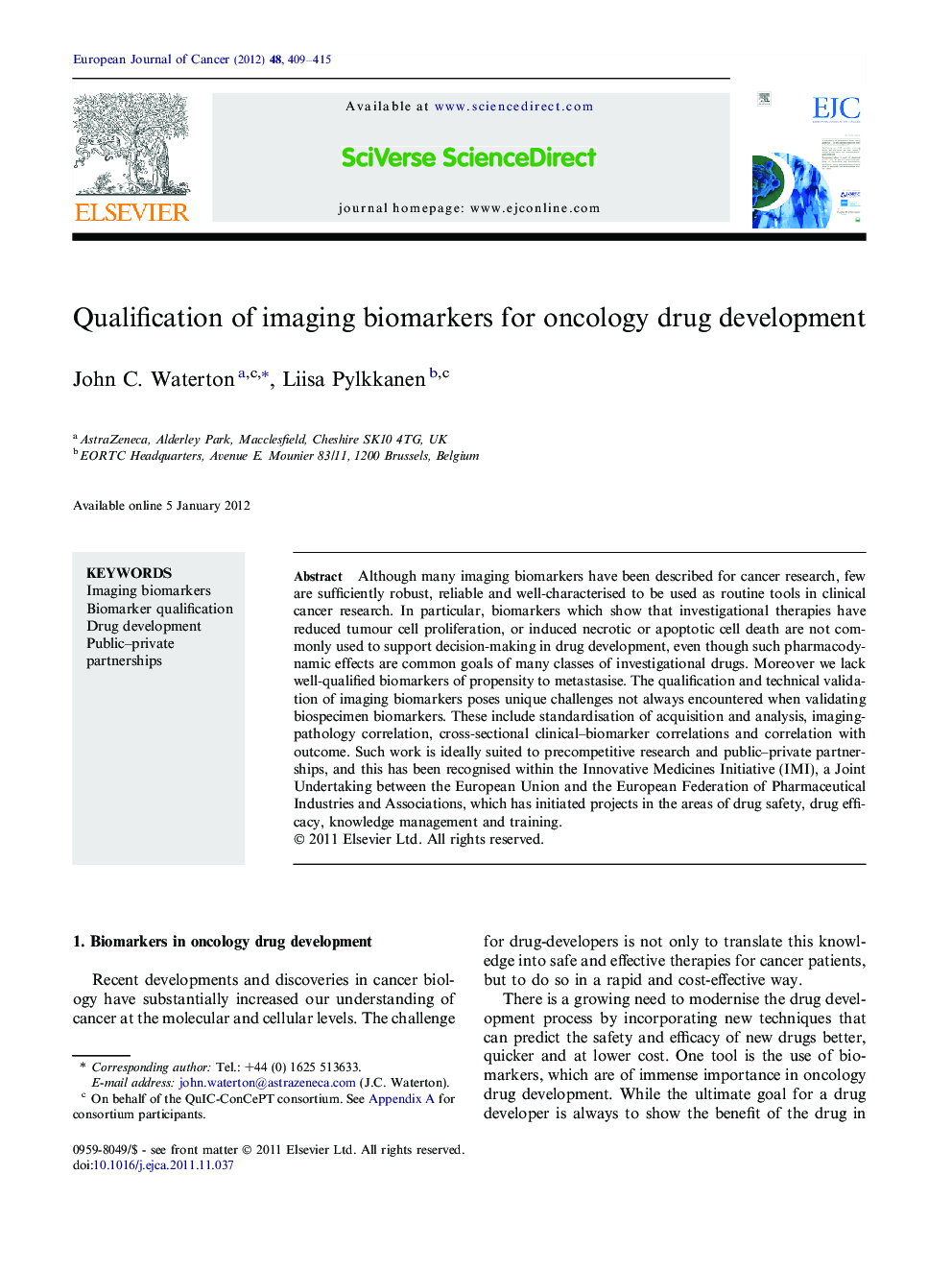| Article ID | Journal | Published Year | Pages | File Type |
|---|---|---|---|---|
| 2122226 | European Journal of Cancer | 2012 | 7 Pages |
Although many imaging biomarkers have been described for cancer research, few are sufficiently robust, reliable and well-characterised to be used as routine tools in clinical cancer research. In particular, biomarkers which show that investigational therapies have reduced tumour cell proliferation, or induced necrotic or apoptotic cell death are not commonly used to support decision-making in drug development, even though such pharmacodynamic effects are common goals of many classes of investigational drugs. Moreover we lack well-qualified biomarkers of propensity to metastasise. The qualification and technical validation of imaging biomarkers poses unique challenges not always encountered when validating biospecimen biomarkers. These include standardisation of acquisition and analysis, imaging-pathology correlation, cross-sectional clinical–biomarker correlations and correlation with outcome. Such work is ideally suited to precompetitive research and public–private partnerships, and this has been recognised within the Innovative Medicines Initiative (IMI), a Joint Undertaking between the European Union and the European Federation of Pharmaceutical Industries and Associations, which has initiated projects in the areas of drug safety, drug efficacy, knowledge management and training.
